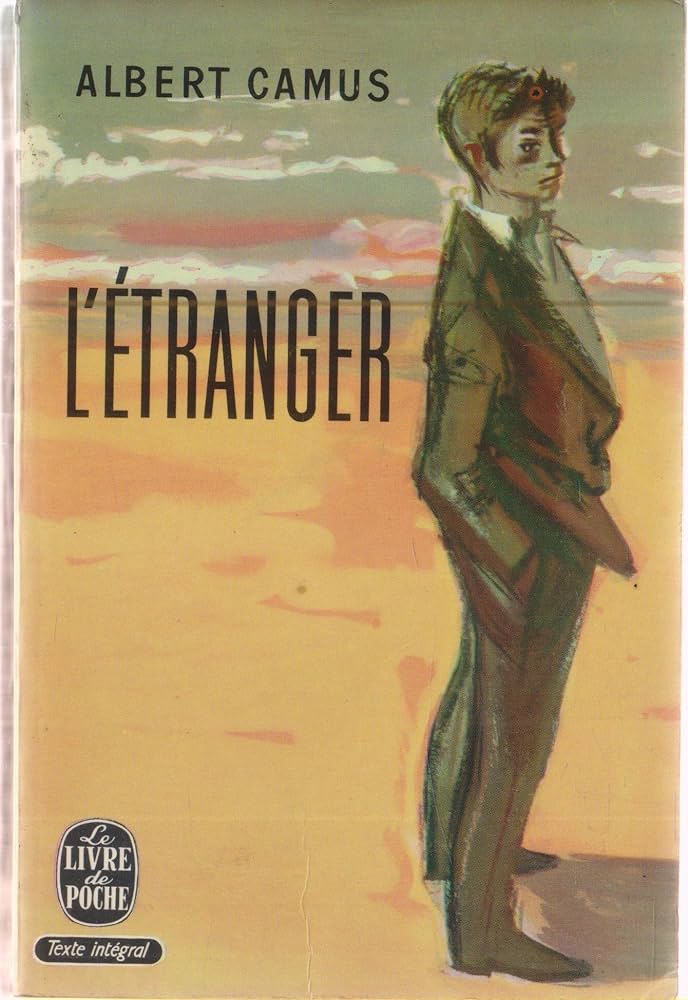Albert Camus’s The Stranger is a short 1942 French novel that explores moral nihilism and absurdity through its depiction of the protagonist, Meursault. It also doubles as a portrait of the political landscape of the time. Written in occupied France, the book encapsulates a perspective that largely stems from Camus’s own experiences, as well as the general French population’s discontentment with Nazi Germany rule.
Camus was born in Algeria, where he witnessed the mistreatment of native Algerians by the French. At the time, France had occupied Algeria since 1830, and the resistance against the French eventually led to Algerian independence in 1960. Camus depicts this resistance–which would later become the Algerian War–through his portrayal of the character “the Arab” (who is never named) and the interactions between him and Meursault, a Frenchman. Without spoiling too much of the book itself, “the Arab” plays a key role in highlighting Meursault’s relationship with the world around him, and the philosophies Meursault was created to embody.
Nihilism, essentially the idea that life itself is meaningless, is a very broad philosophy that can be split into several smaller categories. The Stranger primarily explores moral nihilism (also known as ethical nihilism). This philosophical idea suggests that morality does not exist, and that, therefore, an action cannot be morally right or wrong. Absurdity often goes hand in hand with nihilism, but it differs in a few key ways. Like nihilism, absurdity proposes that life has no purpose, but it also suggests that this lack of purpose stems from a lack of rationality within the universe. In other words, nothing matters because nothing happens for a reason, and therefore, nothing can be made sense of. Slightly confusing, but to majorly boil both of these complex philosophies into a couple of simple words: nothing matters.
Nihilism, specifically, often feels pessimistic; nihilistic literature is often interesting but depressing reading. The Stranger feels different. This isn’t to say it’s not a depressing read, more just that the moral nihilism present in the book isn’t necessarily negative. I make the distinction between moral nihilism and absurdity because there is a gradual shift from the former to the latter as the book progresses. This transition happens as Meursault is suddenly faced with the reality of his own mortality.
It’s important to mention that the book is split into two halves, separated by an interaction Meursault has with “the Arab.” The opening lines of the book are “Aujourd’hui Maman est morte. Ou peut-être hier, je ne sais pa,” which roughly translates to “Mother died today. Or maybe it was yesterday, I don’t know.” These lines are striking because the reader immediately gains an understanding of how Meursault thinks. Meursault’s narrative is fascinating because the way he thinks almost feels too logical, especially through the first half of the book. He was not particularly close to his mother, so he does not feel the need to be sad, and therefore, does not exhibit this emotion after her death. This is one of many examples supporting the idea that, at least in the first half of the book, Meursault thinks in a way that aligns with moral nihilism. As a result of this, he is quite passive throughout the book, often conveying more with what he doesn’t say than what he does. He doesn’t display a desire to say more because, while he is largely morally nihilist (and, of course, there are exceptions to this as Meursault is still a human character that can not fully encompass one philosophy) he is content with the lack of purpose he finds in life, serving as an example of nihilism that exists without pessimism.
Meursault retains his passivity through the second half of the book but slowly begins to lean towards an absurdist standpoint as he loses control over his life. To cope with the series of “unlucky” events inflicted on him, he adopts the standpoint that life is irrational and, therefore, does not follow a logical progression. This shift deepens the reader’s understanding of the character even further by displaying Meursault as a character who is not static, contrary to how he appears initially. The last few pages of the book truly embody what an absurdist philosophy looks like in practice.
The philosophical questions The Stranger raises vary from person to person, allowing the reader to form their own interpretation of Mersault’s rationale and motives. If you are at all interested in philosophy, I highly recommend this book. It’s not a light read by any means, but it’s a book that can be finished in a few sittings and one that will stick with you months after you’ve finished it.






























